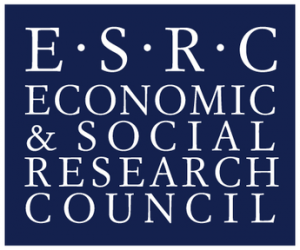Cate Watson
University of Stirling
A response to Ron Hill’s Now is the perfect time for thinking about strategy and strategic positioning
I read with interest Ron’s blog which sets out some clear pointers for why College Boards should start by considering strategy development. I have no issue with any of the excellent advice offered by Professor Hill, but in reading his piece it reminded me just how easy it is to reduce processes to things. We tend to think of a strategy as something that the College has rather than something it does. Strategy becomes something mechanical, a series of bullet points. This tendency concerns a long-standing dispute that goes back at least as far as the ancient Greeks – the contest between process and substance.
Heraclitus is probably best known for saying that you never step into the same river twice. For Heraclitus everything was in a state of flux, a continuous process of processes. Parmenides, on the other hand, took a different view in which substance is primary and processes simply the means by which substance is moved about. In common sense terms this feels intuitively true, substance is – substantial. Process, by contrast seems fleeting and difficult to grasp. How can process produce substance? Philosopher Henri Bergson summed up the difficulties for us in accepting the process view. Bergson says that we labour under the illusion that ‘we can think the unstable by means of the stable, the moving by means of the immobile’ (Bergson, 1913, p.264). In other words we have a tendency to reify as ‘things’ ongoing processes, abstracting these from the continuous flow of time. This leads to what Whitehead, another leading process philosopher of the 20th Century, described as the Fallacy of Misplaced Concreteness (FMC).
Whitehead defines the FMC as, ‘neglecting the degree of abstraction involved when an actual entity is considered merely so far as it exemplifies certain categories of thought’ (Whitehead, 1929). The FMC leads us to mistake our conceptual models for reality; in doing this, Whitehead says, we make a category error. It is instructive to consider the dangers that this error is liable to. Rather like the butterfly collector’s specimen, which once pinned to the cork-lined display cabinet loses all the experiential qualities of butterflyness, strategy once mistaken as a thing loses its élan vital (Bergson, 1913). Certainly we can still admire the butterfly’s beautiful markings (like the glossy pages of the strategic plan) and we can even dissect the butterfly and develop a plan for being a butterfly (however misconceived), but everything that matters has been removed from the flow of time. Process has been terminally interrupted. (In a forthcoming piece I argue that the misunderstanding arising from the FMC is what accounts for governance failure).
In the current ESRC funded research project we are undertaking, Investigating processes and practices of governing in further education colleges in the UK, we aim to confront this bias and adopt a processual view. The research takes a longitudinal approach, examining how governing unfolds over time in the board rooms of eight further education colleges in the UK. Our aim is to reveal governing as emergent and always in a state of becoming. Within each college we undertake multiple observations over the course of a session, each an entire event in its own right and each contributing to the process story. We will undertake around 50 observations within which the practices that attend the unfolding of processes will begin to reveal themselves.
Adopting a process view, in which process is considered as having primacy over substance, also allows us to side step the unhelpful conceptual boundary erected between the micro-level of interaction and the macro-level of the global corporation. As Helin et al (2014, p. 6) put it, ‘Actors and organizations are simultaneously consubstantial and empirically inseparable; they are understood in the light of how they produce each other and themselves’.
The process view has been recognised and taken up by a number of academics researching organisation (see, for example, Langley et al, 2013). But it is hard for us to overturn several centuries of received thought. Research itself is a process that attempts to interrupt the flow of what it investigates, abstracting data which quickly become reified (and singularised). At the very least, taking a process view reminds us of the need to maintain a reflexive attention towards the emergence and multiplicity of ‘things’ and to guard against our all too prevalent practices of lepidoptery.
References
Bergson, H. (1913). Creative evolution. New York: MacMillan.
Helin, J., Hernes, T., Hjorth, D. and Holt, R. (Eds.) Process philosophy and organization studies. Oxford: Oxford University Press.
Langley, A., Smallman, C., Tsoukas, H. and Van de Ven, A. (2013). Process studies of change in organization and management: unveiling temporality, activity and flow. Academy of Management Journal, 56(1), 1-13.
Watson, C. (forthcoming) Governance failure: a process view. Whitehead, A. N. (1929). Process and reality. New York: Harper.



